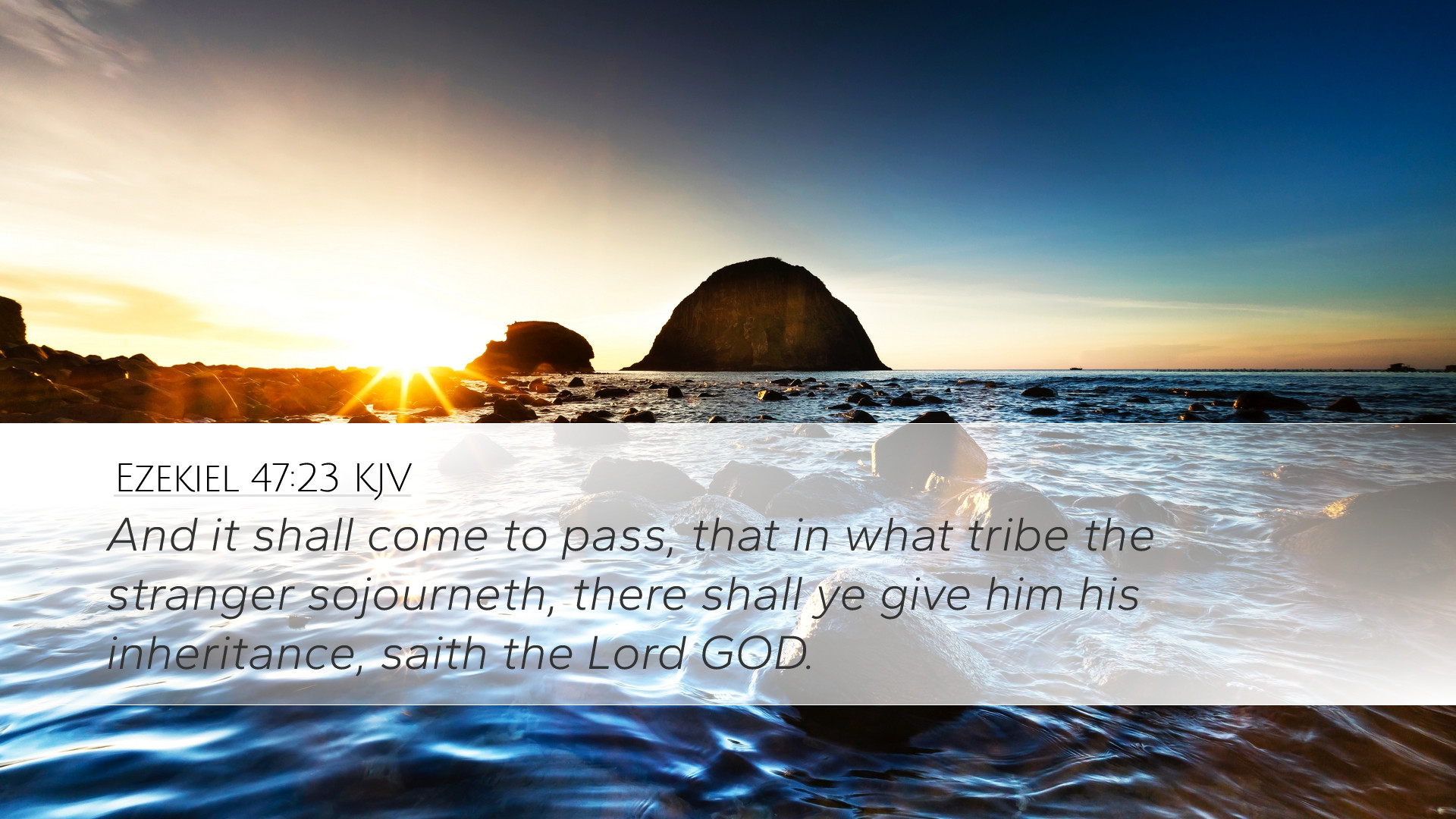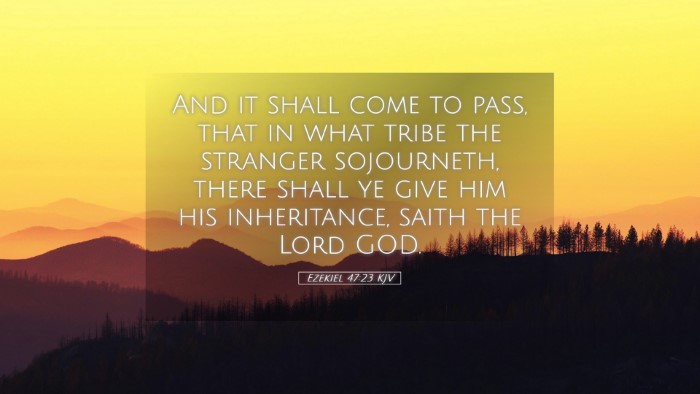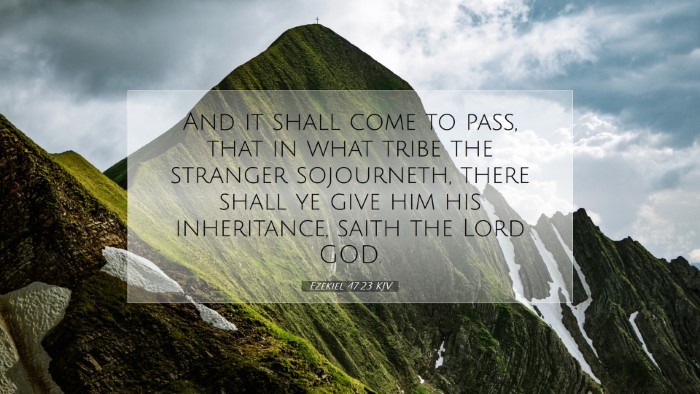Ezekiel 47:23 - A Commentary
This passage, Ezekiel 47:23, situated within a vision of restoration and hope, provides a profound insight into God's promise for His people regarding their inheritance. The verse reads:
"And it shall come to pass, that in what tribe the stranger sojourneth, there shall ye give him his inheritance, saith the Lord God."
The implications of this verse are rich and multifaceted, touching on themes of inclusion, inheritance, and divine justice.
Contextual Overview
The Book of Ezekiel, a prophetic text, engages with the situations of Israel during and after their exile. Ezekiel's visions, particularly in chapters 40-48, articulate a new temple and a restored Israel, bringing forth hope to a people in despair.
Historical Background
Upon examination, one must consider the historical context of the exiled Israelites. The nation was in a state of fragmentation and dislocation, having lost their land and temple. Ezekiel, commissioned as a prophet, communicates God’s intentions for rehabilitation and rediscovery of identity.
Theological Insights
The singular importance of Ezekiel 47:23 lies in its reflection of God's heart toward the stranger or foreigner. The promise that these individuals would receive their inheritance alongside the tribes of Israel emphasizes the inclusive nature of God’s Kingdom:
- Inclusivity: The verse denotes a radical departure from an ethnocentric worldview. God’s provision extends beyond the children of Israel to those who reside among them, suggesting that all who come to Him are afforded inheritance.
- Justice and Equity: Matthew Henry highlights that this verse underscores the justice of God, ensuring that the stranger is not marginalized but granted a rightful share in the blessings intended for God’s people.
- Covenantal Love: Albert Barnes notes that this promise reflects God’s everlasting covenant with Israel, by ensuring that His grace and mercy flow not just to the insiders but also to those who might have been seen as outsiders.
Practical Implications for Believers
The admission of strangers to Israel's inheritance presents significant implications for modern believers:
- Community Engagement: Churches are called to embody this principle by welcoming those outside their immediate fellowship, thus reflecting the character of God.
- Holistic Mission: Adam Clarke elaborates on how the passage demands an active engagement in social issues, where believers advocate for the rights and dignities of those marginalized in society.
- Embrace of Diversity: The promise of inheritance to the stranger encourages acceptance and celebration of diversity within the Body of Christ, fostering unity amidst various cultural backgrounds.
Spiritual Reflection
In contemplating this verse, pastors and theologians are invited to meditate on the heart of God for inclusivity. This is not merely a historical or theological point but a living reality that challenges how they approach those around them:
- Reflecting God’s Heart: How does one actively participate in God's work of reconciliation within their communities?
- Assuring Fairness: Are there mechanisms in place to ensure fair treatment of those who enter our communities?
- Extending Invitation: In what ways are communities inviting the ‘strangers’ in their midst to experience God’s grace?
Conclusion
Ezekiel 47:23 serves as a timeless reminder of God's inclusive promise to all who seek refuge and identity in Him. It challenges contemporary readers to reflect on their own inheritance as they walk with God’s grace, ensuring that God’s love and justice are demonstrated in tangible ways within their communities.


